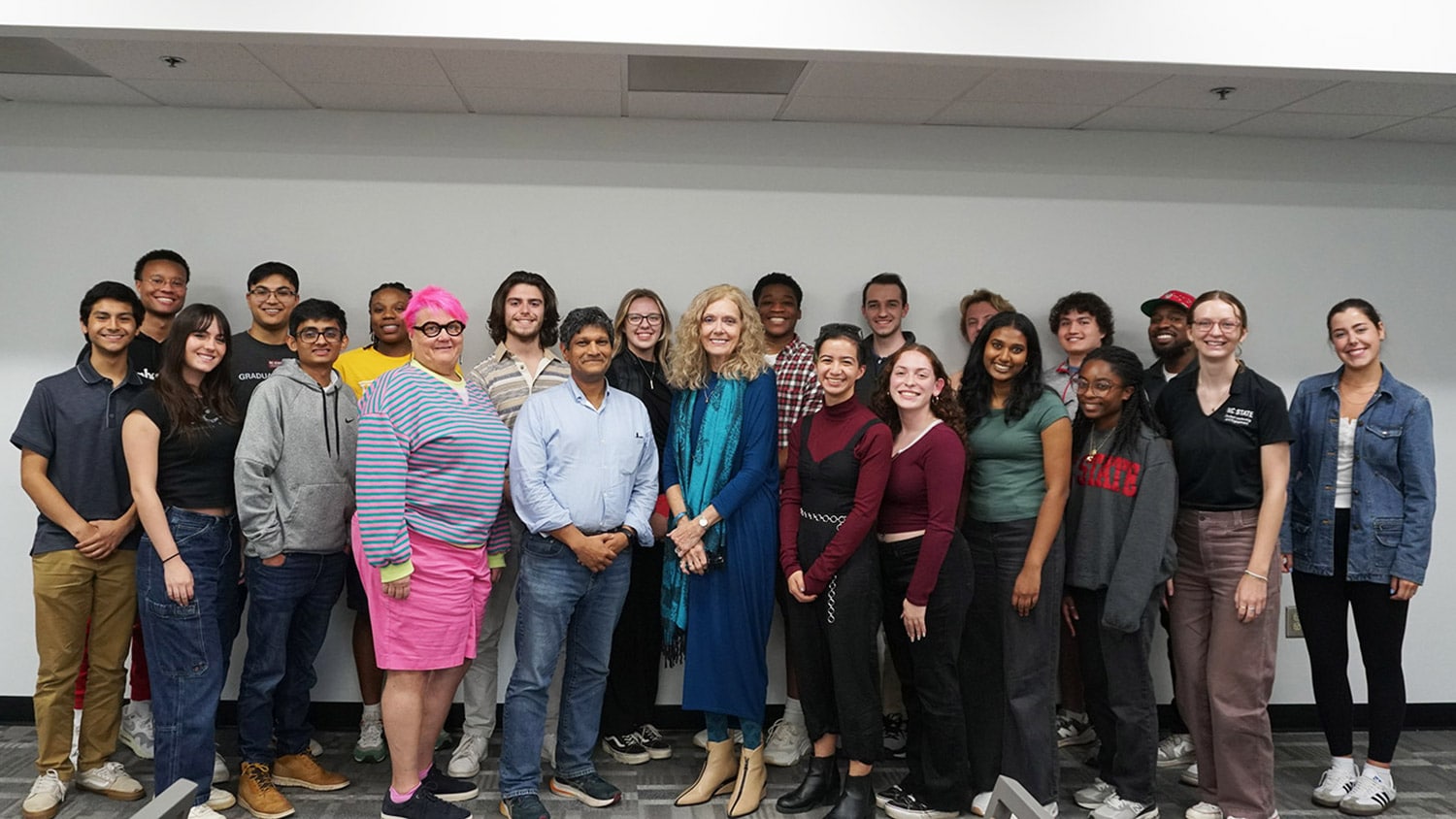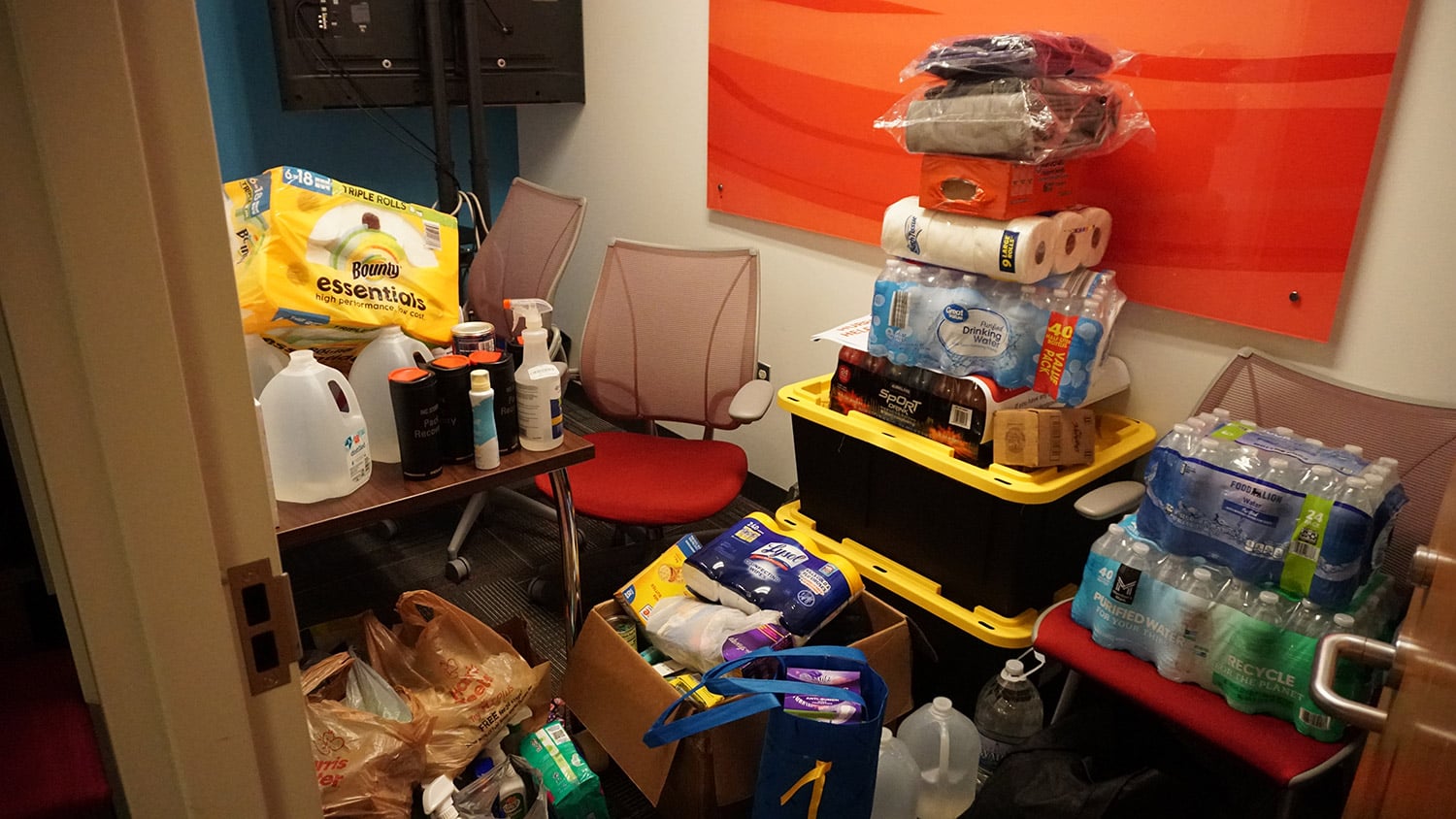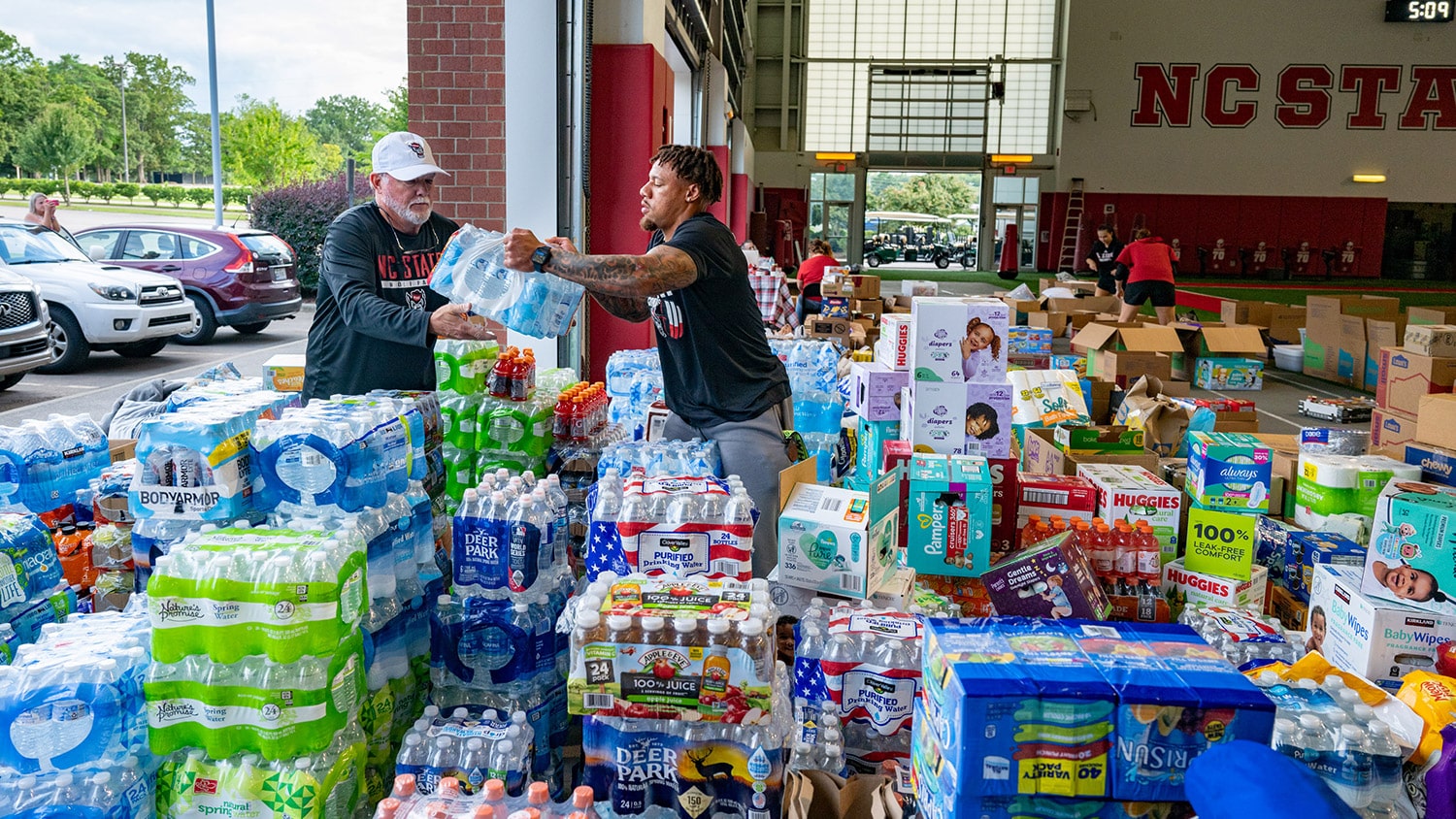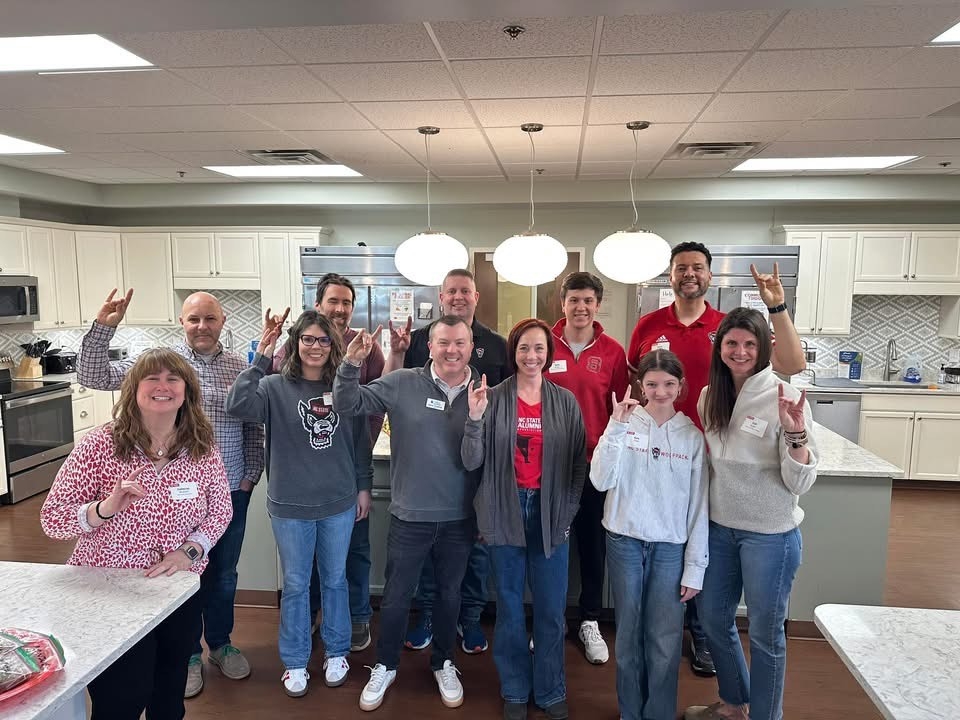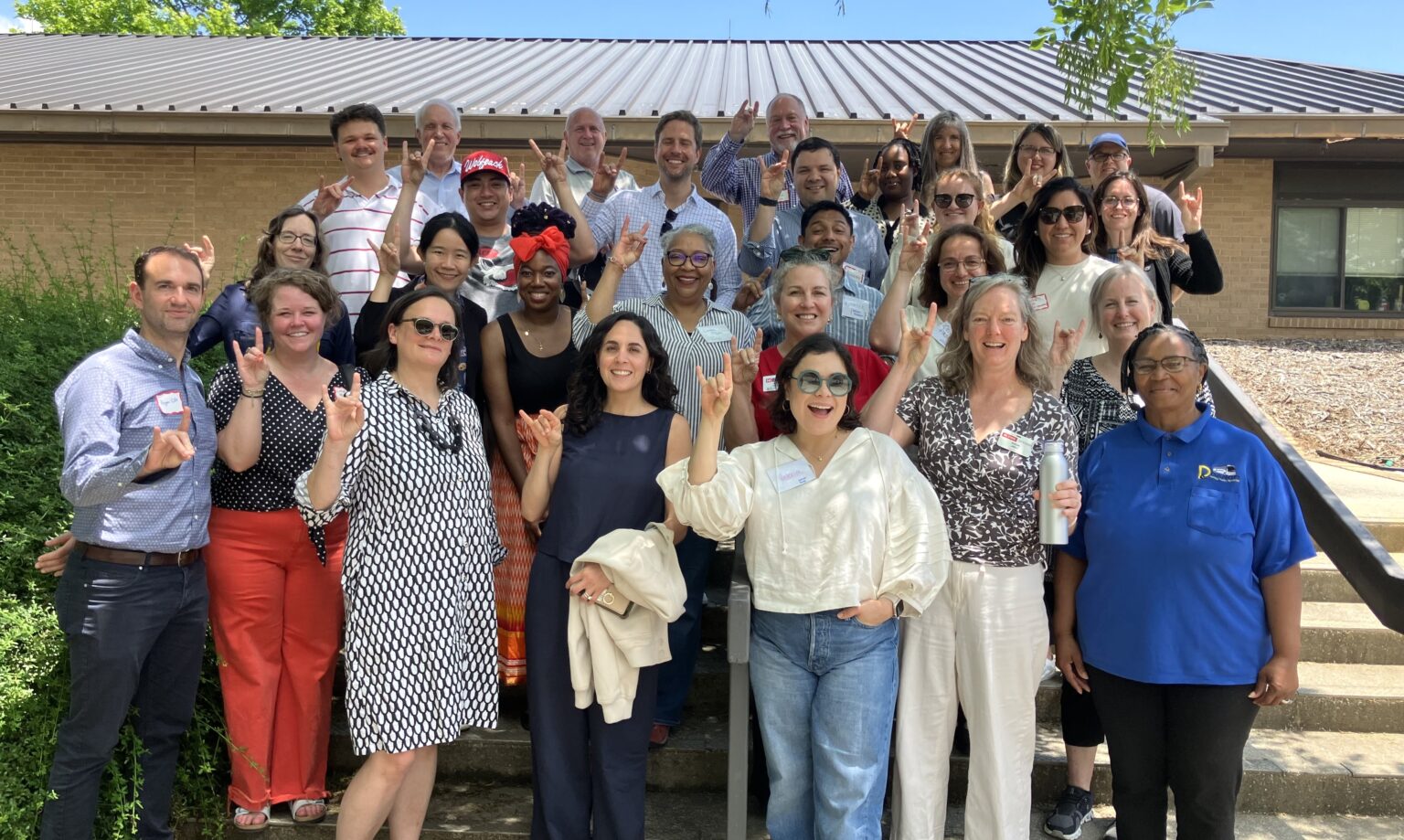Finding Your Wolfpack: Student Government
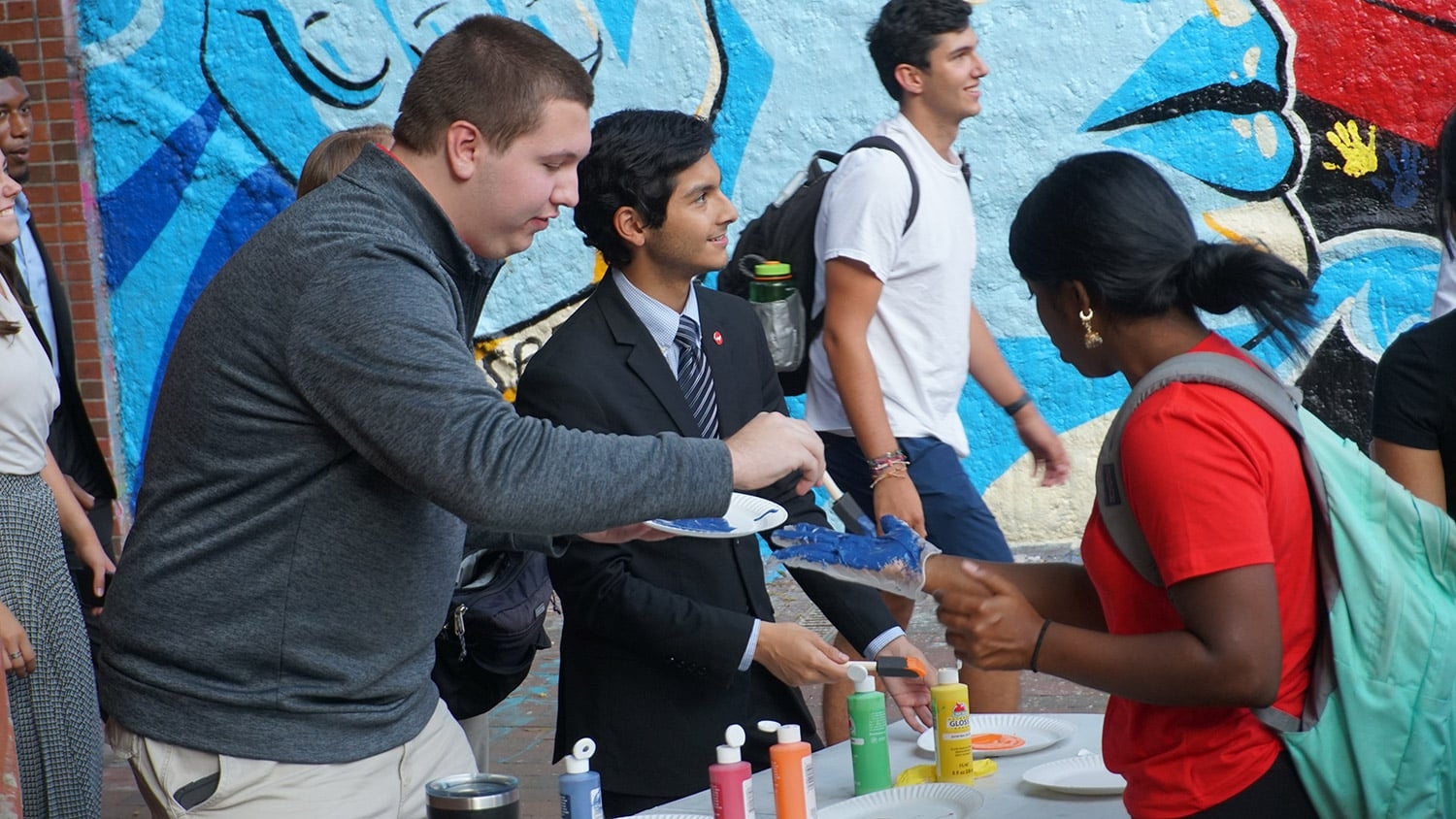
Chloe Webster, a first-year student and native of rural Yadkinville, North Carolina, was concerned that attending a large university like NC State would mean sacrificing the feeling of belonging to a supportive community. Her concerns disappeared during a visit to campus late in her senior year of high school.
“The moment I stepped onto campus, I could just feel that sense of community,” she said. “Every person I talked to, every tour I went on, showed me a different way I could be involved.”
A Park Scholar and political science major, Webster was drawn to one community in particular: Student Government. She’d been both student body vice president and president in high school, and felt she could leverage her leadership experience to be a strong advocate for students at NC State.
“Finding ways to engage with the people you represent and making sure their voices are heard is what leadership has always been about for me,” said Webster.
A Voice for Students
Webster attended interest meetings upon arriving at NC State to find out how Student Government works and where she might fit within it. She learned that the Student Senate — the government’s 72-member legislative body with proportional representation for each college at NC State — offered the chance to negotiate legislation on a wide range of issues and collaborate with leaders in the Executive Branch and Treasury Branch to implement solutions.
Webster decided to run for one of 10 seats on the Senate’s First-Year Delegation. She assembled a campaign team, and instead of pursuing the popular approach of campaigning solely online, she and her team spent their campaign week in places frequented by first-year students, speaking with them about their needs and ideas and encouraging them to vote.
The strategy paid off — Webster won her seat, then was selected as First-Year Delegation Head by her fellow senators. During her campaign, she was surprised to discover many first-year students were unaware Student Government even existed at NC State. The revelation caused her and other first-year senators to prioritize student outreach this session.
“I’ve learned that the university takes what members of Student Government have to say on behalf of students very seriously,” she said. “If we’re going to have really effective representation, we need to make sure we’re reaching as many students as possible.”


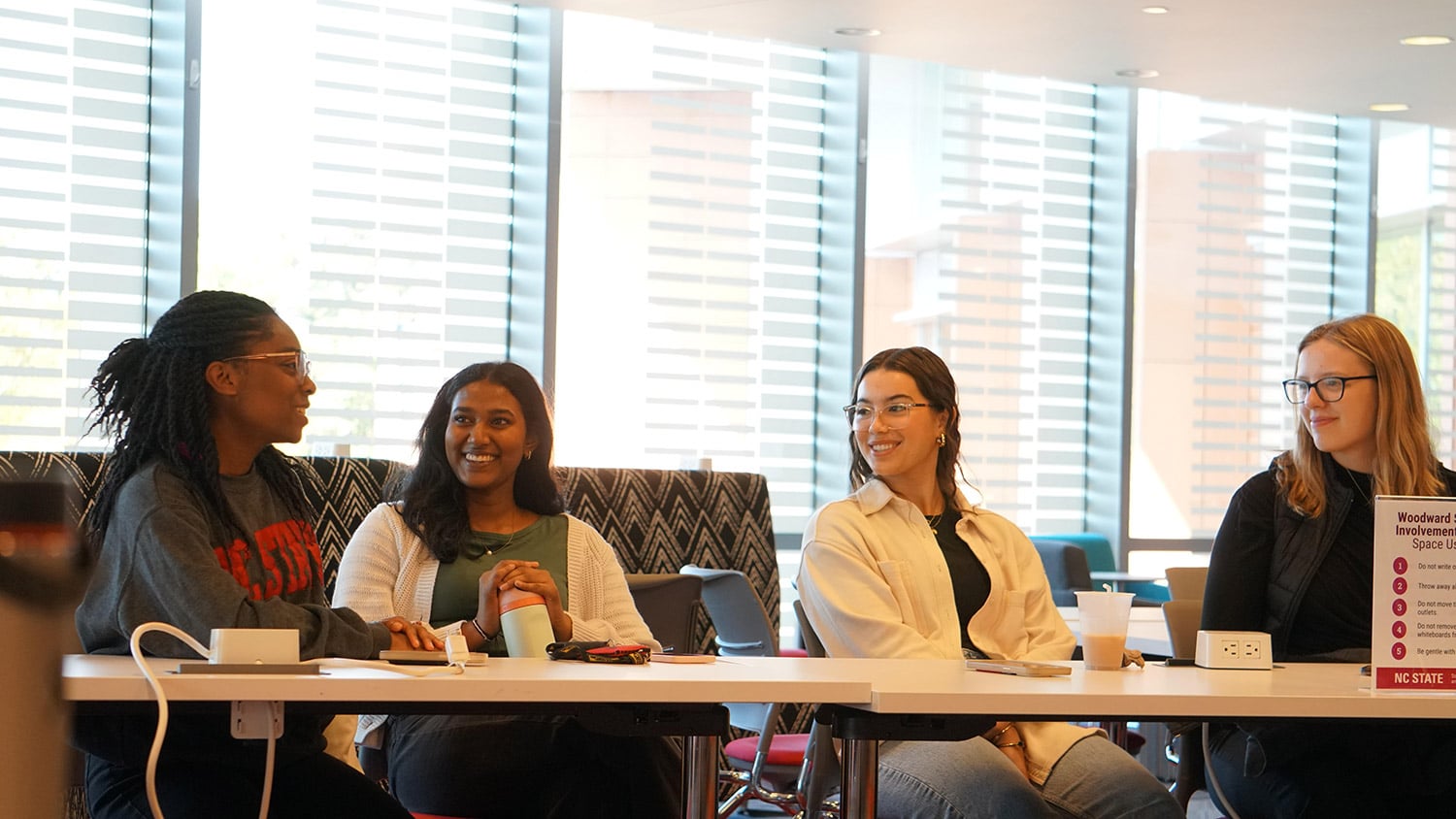
Webster and her fellow senators engage with students through tabling events at spots like Wolf Plaza and Stafford Commons, stirring an active dialogue between Student Government and the larger student body. Their goal is to show students, especially first-years, that Student Government is a support system to serve students’ needs, not an elusive body making decisions for them.
“For example, I have several friends who are forming clubs, and they’ve told me, ‘I have no idea how I’m going to fund this club,’” said Webster. “And I said, ‘Hey, Student Government can help you do that.’”
A Force for Student Success
Isaac Carreno, a third-year student and Park Scholar majoring in social work and political science, got his start in Student Government as a first-year senator, just like Webster. He briefly served as a senator representing the College of Humanities and Social Sciences during his sophomore year before deciding to switch to the Executive Branch.
After serving last year as deputy chief of staff for the previous student body president, Timothy Reid, he now serves as student body vice president alongside Allison Markert, the current student body president.
The Executive Branch “advocates through action,” hosting town halls, spearheading student-facing initiatives and sponsoring programs and events like Respect the Pack, an annual event held during Wolfpack Welcome Week to promote civility and community on campus. Carreno, as student body vice president, focuses largely on matters internal to the Executive Branch, aligning the activities of Executive Branch leaders to support student success.

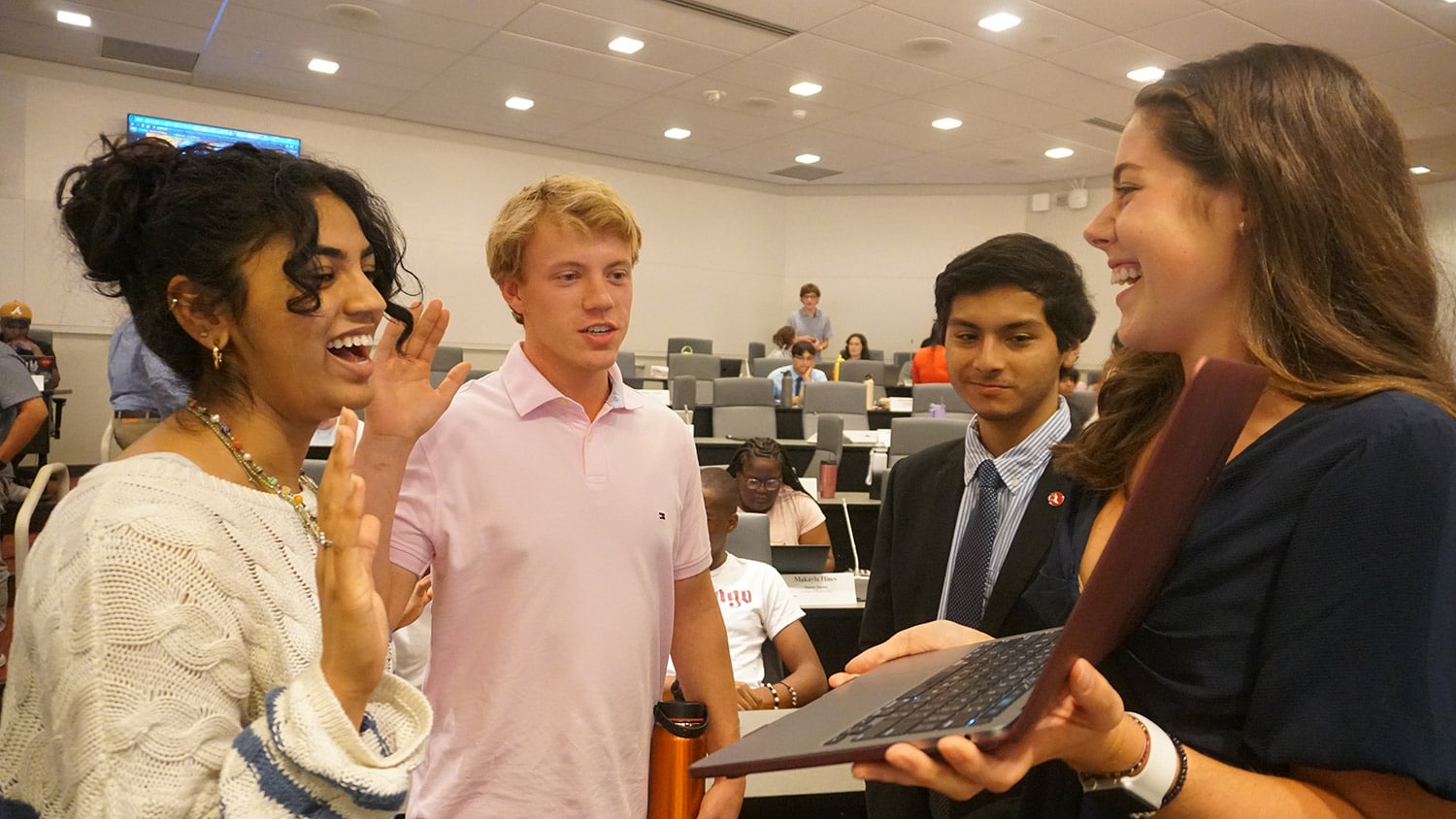

One initiative Carreno is especially passionate about involves expanding civic and community engagement on campus. To nurture that engagement, he’s worked with others in Student Government to launch Student Organization Active Roundtable, or SOAR. This program sends Student Government representatives out across campus to speak with student organizations and learn about their needs.
“We decided we shouldn’t expect organizations to just come to us,” said Carreno. “We should be the ones, as the advocating body for students on campus, to go to student organizations and hear from them.”
“I think a lot of people have the idea that if you don’t join something within the first two weeks of school, then you can’t get involved until next year,” said Chloe Webster. “Which isn’t true for Student Government. We’re always looking to engage more people throughout the year.”
There are many ways to get involved with Student Government. Apply to become a Senate proxy and you could attend meetings in place of an absent senator to vote and engage on their behalf. Students can also attend Senate meetings in person or catch a live stream on the Student Government YouTube Channel. Student Government’s Treasury Branch, which fosters responsible budgeting and monetary success, and its Board of Elections, an independent body ensuring electoral integrity, offer more opportunities to serve.
Email studentgovernment@ncsu.edu to learn more about how you can get involved.


